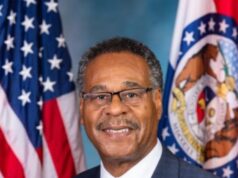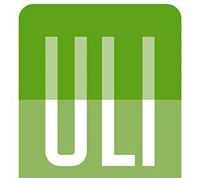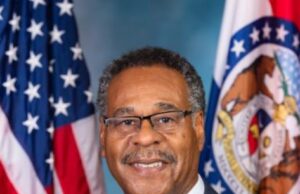Smith’s Provisions included in Senate package sent to President…
WASHINGTON, D.C. – October 1, 2015 – (RealEstateRama) — The House of Representatives today passed sweeping veterans legislation spearheaded by Rep. Chris Smith (R-Hamilton) to reauthorize over 30 critical programs that provide healthcare, education, and child care benefits to veterans and continue the Department of Veterans Affairs’ (VA) homeless veterans and caregiver assistance.
“It is important to create and maintain programs that give veterans the opportunity to become self-sufficient, and to concentrate our resources on programs that work and prove successful for veterans in need,” said Smith, a former chairman of the House Veterans Committee and key player in the establishment or expansion of several of the programs reauthorized today.
“The programs in this bill work both to prevent homelessness among veterans and to reintegrate veterans who have fallen on hard times back into the community. Additional provisions will ensure continued support for service-connected disabled veterans, their caregivers, for veterans who need childcare in order to keep important medical appointments, for veterans exposed to Agent Orange and for readjustment counseling programs aimed at helping recently separated women veterans,” he said.
In the interest of time, Smith and House Veterans Chairman Jeff Miller (R-FL) agreed to move the Senate version of the Smith benefits extenders bill (HR 3596) and a separate bill authored by Miller (HR 3595) to authorize additional funding for a VA hospital in Colorado. The Senate bill (S 2082) combines provisions of the two House bills and ensures that the legislation will get to the President’s desk before the end of the fiscal year.
“Let me thank Chairman Miller for his leadership on this bill and the Committee’s work to bring it to the floor in a timely manner,” Smith said. “For the sake of our veterans, it is absolutely critical that these programs be funded directly and independently and not ensnarled in any larger, possible budget delays or breakdowns,” he said.
Smith, the author of the landmark 2001 Homeless Veterans Comprehensive Assistance Act (Public Law 107-95) focused much of his comments during today’s floor debate on the homeless provisions of the new bill.
“Title III of today’s bill extends many provisions I wrote back in 2001 to combat homelessness amongst veterans—programs that focus on homeless female veterans; homeless veterans with special needs, children, serious mental illnesses, and incarcerated veterans.
My original law also authorized dental care—for better oral health—job training and expanded domiciliary care programs. It authorized the Advisory Committee on Homeless Veterans and launched the national goal of attempting to end chronic homelessness among veterans within a decade of the enactment of the Act. All of these important programs will be extended by the legislation we consider today,” Smith said.
Smith also highlighted the Homeless Veterans Reintegration Program run by the Department of Labor—which helps homeless veterans reenter and stay in the labor force and the HUD-VASH program, which combines rental assistance with case management and clinical services.
“Every one of these programs continues to be a highly effective means of reducing homelessness among our veterans population. They have earned our continued support,” he said.
Smith said that “the proof of the pudding” is in the numbers. He said that in 2001, when his law was first enacted, it was estimated that almost 300,000 veterans experiences homelessness that year. He said that by fiscal year 2013, “that number had decreased to approximately 140,000 veterans.”
Smith pointed out that the VA and HUD have since changed how they calculate homeless veterans to a point-in-time estimate, i.e. per night and “we still have much to do.”
“On any given night last year, just under 50,000 veterans were on the street and we must continue to target our resources to combat homelessness,” he said.
Both HR 3596 and S. 2082 also continue the Supportive Services for Veteran Families (SSVF) program, which focuses on preventing homelessness by keeping at-risk and low income veterans and their families in their homes. Smith said the program is serving veterans in his district and that he has worked directly with the non-profit organization Soldier On to secure funding from this grant program to allow the organization to operate in Mercer, Monmouth and Ocean counties.
In addition to the homeless veterans programs, the provisions of the Smith bill included in S. 2082 will:
extend nursing home care for veterans with service connected disabilities and support for veterans caregivers to ensure individuals who care for our veterans are compensated for their work;
reauthorize the pilot programs that subsidize transportation and child care for veterans receiving healthcare through the Department, so veterans do not miss important doctors appointments because they do not have a ride to the facility or cannot find a babysitter;
continue programs that allow veterans to modify their homes to meet certain restrictions as a result of their service-connected disability;
provide continued authority for the VA to conduct group readjustment counseling for recently separated women veterans with mental health needs in a retreat setting;
allow the National Academies of Sciences (NAS) to continue to review links between agent orange and other herbicide exposure and illnesses experienced by veterans;
authorize new construction for four major medical facilities; and
extend the VA’s authority to provide rehabilitation and vocational services to current servicemembers with severe injuries prior to their discharge from active duty.
















